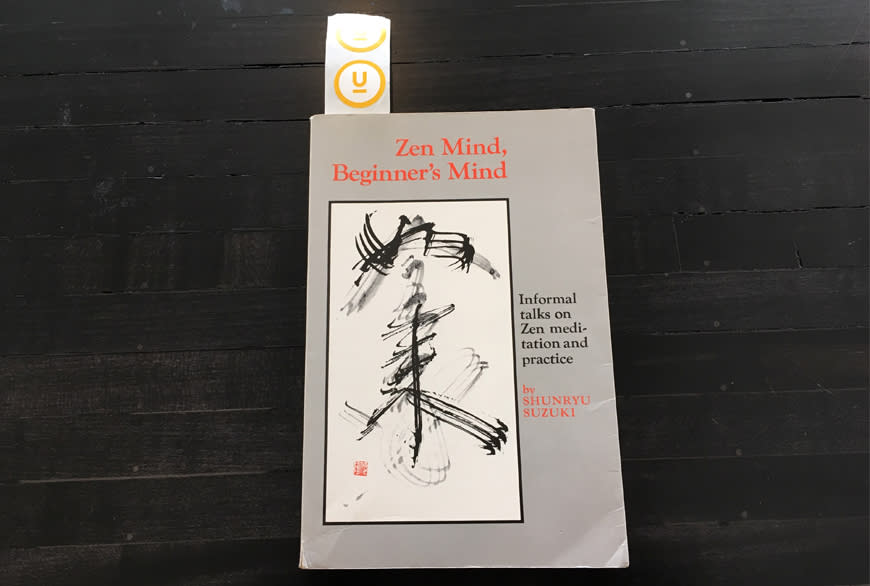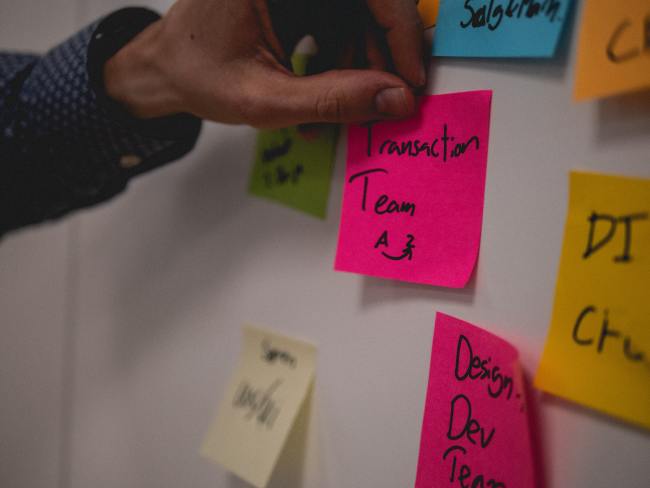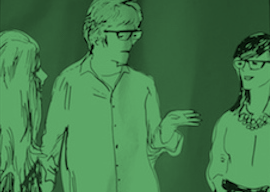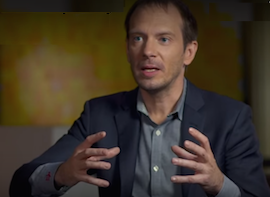
"In the beginner's mind, there are many possibilities," writes Shunryu Suzuki in Zen Mind, Beginner's Mind, "but in the expert's there are few."
Between many possibilities and the few—that's where innovation lives.
Innovators need no translator to understand Suzuki. He published Zen Mind in 1970 and died the following year, so he clearly never heard of Continuum or "innovation capability," but I'm confident he would have recognized the ethos of our practice, had he spent three minutes in a project room observing the way we work.
And just what is innovation capability?
Well, you can watch SVP Jon Campbell's clear explanation in this well-produced video, or you can imagine for yourself that it's a lot like… stepping onto the bandstand and trading fours with a skilled alto saxophonist. Innovation capability, like jazz, is a difficult process to master. It requires both expertise and the instantaneous ability to jettison that knowledge at will. As Charlie Parker is reported to have said: "Master your instrument; master the music; and then forget all that b_llsh_t and just play." A capable innovator can always access beginner's mind, or shoshin, as Suzuki might say.
IC takes practice. And "practice" is a significant word for Continuum—practitioners are the people we send out into the world to innovate—and it's a significant word in Zen. Suzuki writes that "whether Buddhism is philosophically deep or good or perfect is not the point. To keep our practice in its pure form is our purpose." At Continuum, we practice an incessant pragmatism by transforming ideas into products and experiences that real, relevant people can try and respond to.
Successful innovation requires a mind that can toggle back and forth between the beginner's mind and the expert's, the two modes swirling in dynamic symbiosis. When we do contextual interviews, for instance, our beginner's mind asks naïve questions, one that might seem obvious or even preposterous to our clients, who are experts in their business. In the beginning, we're dedicated to learning, not judging. There is a freshness of vision. Our minds are receptive and free of prejudice. We step onto the scene with a finely honed professional naiveté.
"In the beginner's mind, there are many possibilities, but in the expert's there are few."
Of course, we aren't beginners: Continuum is a global innovation design firm that's been doing this for over three decades—and here's where our expertise takes the stage. This is when we collect what we've learned in the field and reflect, using our deep diverse reserves of specialization and technical information, on what we saw. We draw it out at the whiteboard and discern what the relevant insights are and start thinking about what we can build to respond. We prototype, put what we've built in front of the relevant people, in the proper context, and observe their reactions with the freshest of eyes.
The complexity here is that it isn't one or another mindset that's in charge. At any moment, the situation might demand expertise or naiveté. It's our job to be prepared for the necessary frame of mind. It's our job to have agile intellectual attitudes. It's also something we can teach.
In truth, as a project moves along, there's a winnowing involved. As iteration occurs, choices get narrowed down, and the expert mind begins to dominate where the beginner's mind once did. Eventually, the path toward the right option—after much testing and tweaking and improving—becomes clear. We're talking, in a way, about E pluribus unum of iteration. We begin with a wide, open welcoming vision and then bring in our critical thinking, our experience, and winnow down the multitude of ideas to those that are reality-ready. Making such choices is essential for implementation.
It's important to understand the dialectic of Continuum's innovation process. It is what we practice, and this is what we preach when we work with clients on their innovation capability. A person, an organization, capable of innovation has a double-minded ethos they bring to their work. To cite an iconic example: Procter & Gamble wanted us to figure out the future of mopping. So we went into people's homes and watched them mop. We noticed that people spent more time sweeping up before, and then squeezing the mop after, mopping that we were prompted to ask: what if the mop head was the problem? "Watching how a mop pushes dirt around the floor, and noting that people always swept before they mopped, Continuum's team wondered: What if a mop could attract dirt to itself?" This was the beginner's mind at work. From here, the expert's mind took over: "This prompted them to envision, design, and test an alternative appliance with a disposable pad that used static electricity to attract dirt and dust toward it, without the use of water. Its swivel-head design made it easy—even fun—to maneuver, and the simple pad attachment and removal meant users never had to touch the dirt." Thus, the Swiffer.
Successful innovation requires a mind that can toggle back and forth between the beginner's mind and the expert's, the two modes swirling in dynamic symbiosis.
When we work with clients to strengthen their innovation capability, we're not talking about some paint-by-numbers innovation process; it's not a workshop or checklist or e-book. IC is extremely complicated. It's a mindset and a process and an ethos involving metrics, teams, culture, and more. But minset is the most important and difficult to achieve.
Are there any ways you can start working on your IC mindset?
One superb means of making this happen: reading and writing, which are, to me, the front and back flaps of the book of life. As a lifetime English major, I always recommend that would-be innovators read people such as Nicholson Baker—a guy on whom "nothing is lost," as Henry James might—as a way of emptying their minds and filling it with the consciousness of a world-class noticer. Read Baker's novel The Mezzanine, which is essentially the record of an extremely thoughtful lunch hour, and your mind becomes receptive and open, prepped to see the world exactly as Baker does.
From here, I encourage folks to take their own lunch hour, observe carefully using their shoshin, and then come home and write up the experience in exacting Bakerian detail, producing their own version of expert prose.
You understand, of course, that merely reading and writing won't earn you an all-access pass to the innovation capability mindset? That this is only a way of introducing you to it? Great. As Dr. Spielvogel says at the conclusion of Philip Roth's classic Portnoy's Complaint: "Now vee may perhaps to begin. Yes?" Suzuki would agree.





